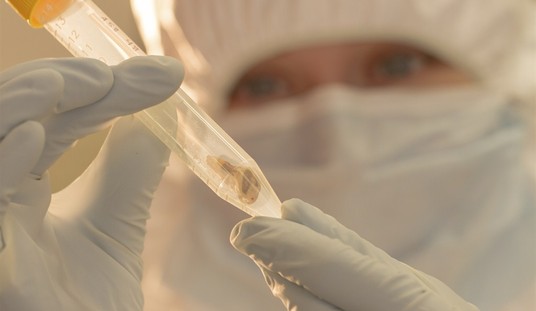Just how far does presidential immunity stretch — and just how far should it? That question might get lost in the acute issues surrounding Donald Trump’s challenge to a subpoena for his tax records. Jazz wrote about Donald Trump’s loss earlier today and what it means for his legal situation, but Judge Victor Marrero’s order raises serious questions about accountability as well as defense against prosecutorial abuse for political gain, even if this isn’t an environment suitable for resolving them.
Marrero’s order starts off badly for Trump and only goes downhill from there. Marrero frames Trump’s conception of his office as essentially immune from any investigation, even for acts that might have taken place prior to being elected to it:

To buy this argument, Marrero decides, is not just to say that a president cannot be prosecuted while in office. It’s to say that he can’t even be effectively investigated, except by the House of Representatives. The latter is likely what the founders had in mind for acts while in office, but nothing in the Constitution sets up that kind of immunity for potential criminal acts that took place outside of it. That would mean that any accomplices would get off scot-free too, Marrero points out:

It’s a compelling argument, but that doesn’t mean Trump’s is entirely without merit either. Yes, one can easily see how this broad claim of immunity can be abused, but then again, one can see how the prosecutorial processes of states and localities can be abused to unfairly besmirch presidents and other executive officers. One only needs to remember what happened to Rick Perry with the Travis County indictment over a veto threat to grasp that prosecutorial authority can a two-sided blade when it comes to political abuse. (And perhaps to an extent what happened to Sarah Palin too, although Alaska’s obtuse laws created part of that issue as well.)
Marrero argues that he has taken that into consideration in dismissing Trump’s challenge to the subpoena for his tax records. The potential for presidential incapacitation over legal issues does not attend fully at “every stage of every criminal proceeding.” In this case, the risk is limited, Marrero concludes, as Vance’s investigation is focusing on “conduct and transactions relating to third persons that occurred at least in part prior to the President assuming office, that may or may not have involved the president, but that at this phase of the proceedings demand review of the records the President possesses or controls.”
Either way, Marrero concludes, he’s not going to endorse absolute immunity for a president, which he calls “repugnant”:

It’s tough to disagree in principle with Marrero, or even in practice, given the lack of support in the Constitution for Trump’s claims here. The issue is complicated enough that a future Congress should work out precisely what executive immunity means, perhaps with an amendment to the Constitution to ensure courts at all levels abide by it. We don’t want a president to be above the law, but we also don’t want a president beset by politically ambitious local prosecutors who abuse their office to pry into the private or commercial lives of those who run for the office, either.
That will have to come from a future Congress during another presidency, however. This Congress and this presidency do not provide a suitable environment for the serious and non-partisan consideration these questions require, to say the least.








Join the conversation as a VIP Member